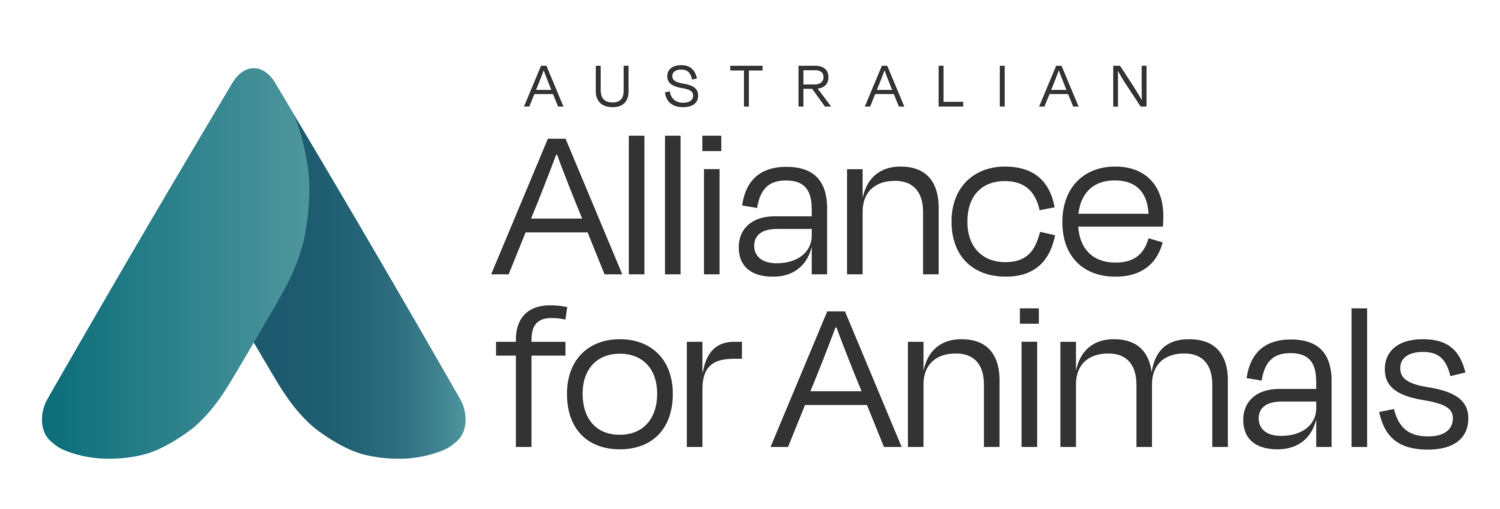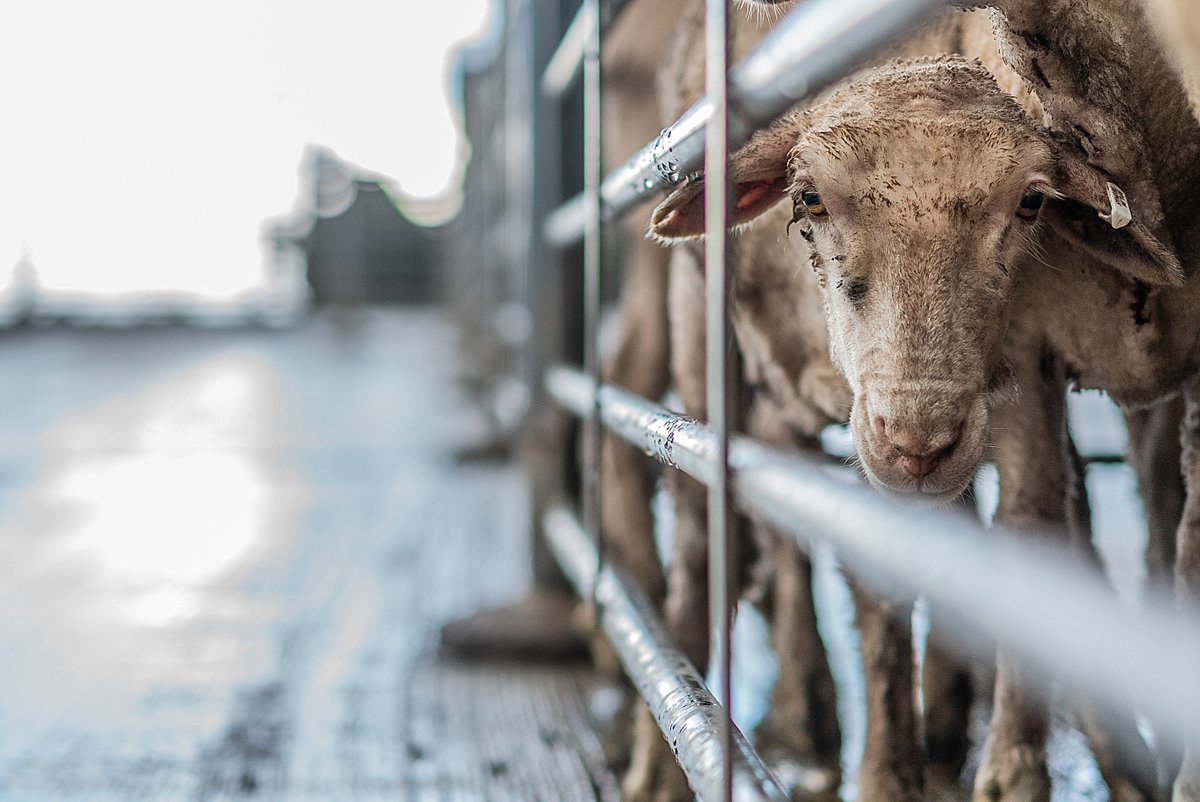Why Australia Needs a National Animal Welfare Commission
Australia is lagging behind the rest of the world on animal welfare, currently scoring a shamefully low ‘D’ ranking on the global Animal Protection Index. Many Australians find this surprising to learn – why is an animal loving nation such a poor animal welfare performer?
No national body overseeing animal welfare
We know that Australians care deeply about the welfare of animals. We have one of the highest rates of pet ownership in the world, with 69 per cent of Australian households including a companion animal of some sort. Yet despite this, Australia has no national body to set and oversee standards of animal welfare throughout the country. As a nation we have no consistent understanding of what constitutes appropriate care and treatment of animals in different contexts.
Nowhere have the issues with our animal protection system been more apparent than in the struggle to review and modernise Australia’s heavily outdated poultry standards.
The current review of the national standards for the welfare of poultry has just, unbelievably, entered its seventh year and there is still no end in sight. These delays have not only created great uncertainty for industry and consumers alike, but most concerningly they have deprived millions of animals from the benefits of improved welfare standards. In fact, during this seven-year period an estimated 70 million hens were forced to endure their entire lives in barren battery cages.
Australian hens in a battery cage. In barren battery cages, layer hens are unable to express their natural behaviours, such as wing flapping, stretching, foraging, dust bathing and laying their eggs in a nest.
Conflicts of interest
A key reason for this lack of priority relates to the way animal welfare is governed in Australia. Responsibility for animal welfare policy is mostly delegated to departments of agriculture, who have the primary goal of promoting productive and profitable primary industries. Their priority is not animal welfare, and in fact pursuing higher standards of welfare may even be seen to conflict with productivity goals.
When they do consider animal welfare, it’s generally viewed through an economic lens and reduced to the basic health and biological functioning of the animal. This is despite the fact that the relevant science consistently tells us that achieving good animal welfare is far more complex than the protection of mere basic health.
Such narrow approaches fail to reflect contemporary scientific approaches to welfare assessment and rarely result in standards that meet community expectations.
One striking example of this failure is the fact that it is still completely legal across Australia (except in Victoria) to mules sheep without providing pain relief. Although a government-commissioned economic analysis has calculated that providing pain relief amounts to just 45 cents per sheep, policy-makers refuse to view this minor cost to producers as worth the animal welfare benefit.
Failing to meet community expectations
Social research commissioned by the federal Department of Agriculture noted that 95 per cent of people viewed farmed animal welfare to be a concern, and 91 per cent wanted to see some reform to address their concerns. The study also found that people were concerned about conflicting interests when “the same regulatory body responsible for the promotion for the agricultural industry was also responsible for ensuring animal welfare standards.”
We will not achieve meaningful progress on animal welfare unless a new governance framework is established. This new framework must be free of competing interests and give animal welfare the priority the Australian community expects.
In 2016, the Australian Productivity Commission released a report into the regulation of Australian agriculture and identified many deficiencies in the current animal welfare framework.
These included a lack of independence and transparency, a failure to properly consider community expectations, a deficient scientific basis for standards development processes, and widely held perceptions of conflicting interests on the part of agriculture departments.
“To facilitate greater rigour in the process for developing national farm animal welfare standards, the Australian Government should take responsibility for ensuring that scientific principles guide the development of farm animal welfare standards. To do this, a stand-alone statutory organisation — the Australian Commission for Animal Welfare (ACAW) — should be established. ”
A new approach
The Commission recommended the establishment of an ‘Australian Commission for Animal Welfare’ to coordinate national animal welfare policy and standards development and to publicly assess the effectiveness of state and territory implementation and enforcement.
Under this new approach, the states/territories would continue to maintain power to legislate and regulate animal welfare standards, but importantly, the Commission would lead, coordinate, monitor implementation and provide expert technical assistance to facilitate progress.
For many years advocates have campaigned for the introduction of a similar body, including various attempts by minor parties and independents to introduce legislation to establish some form of ‘independent office of animal welfare’ as a statutory authority at the federal level.
Pigs in an Australian farm. Progress on drafting national standards for pigs, which have the potential to bring about a much-needed end to the use of stalls for sows and boars, ground to a halt in 2018 as the dysfunctional standards process can only cope with one review at a time.
Need for a new national body
The Australian community expects governments to provide more robust animal welfare standards, stronger compliance monitoring and enforcement services, and greater transparency and public reporting on such services.
Creating a new national animal welfare commission will lead to:
Greater national consistency reducing compliance costs for business
A more streamlined approach to animal welfare policy and standards development
Greater cooperation on animal welfare policy development between stakeholders and jurisdictions
Improved consumer and community confidence in animal welfare standards and regulatory oversight
Stronger international reputation on animal welfare and improved market access.
This is why the Australian Alliance for Animals is calling on the Australian Government to follow the recommendations of the Productivity Commission and establish a national animal welfare commission.
No government can reasonably claim it takes animal welfare seriously under current policy and governance settings. The current system is simply not working. Animal welfare is being neglected and Australia’s international reputation is suffering as a result.
It is time Australia took animal welfare seriously and established a long overdue national animal welfare commission.
Photo credits: (1) Lissy Jayne / HIDDEN / We Animals Media. (2) Jo-Anne McArthur / Animal Liberation Victoria / We Animals Media. (3) Jo-Anne McArthur / We Animals Media.



